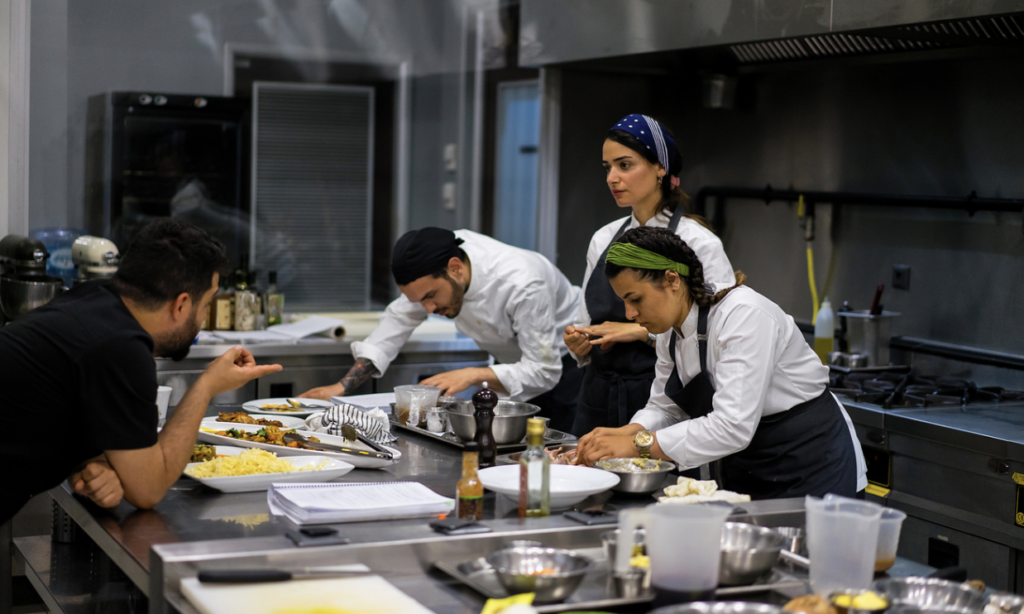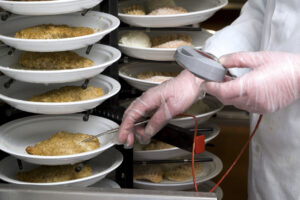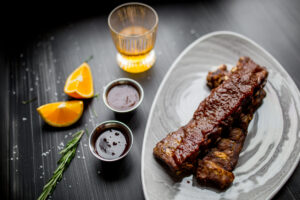Hiring great people is only the first step. How you introduce them to your operations, your service standards, and your culture has a direct impact on whether they stick around and whether they thrive. At EyeSpy, we’ve helped restaurant teams of all sizes transform the way they onboard and train, creating systems that lead to better service, stronger sales, and happier teams. Here’s what we’ve found works best.
Intensify The Interview Process
Consider incorporating a practical exercise into your final interview process by offering candidates a gift card to your restaurant. Ask them to dine in and follow up with a written reflection that includes their takeaways, the value they believe they would bring to the team, and a description of the food and overall experience. This approach provides valuable insight into how candidates think, communicate feedback, and express praise. It also reveals their organization, attention to detail, and writing abilities, often highlighting skills that don’t surface in a traditional interview. Plus, it’s an opportunity to gauge their engagement with the brand.
Start with Structure
Winging it doesn’t cut it. New hires need more than just a tour and a shadow shift—they need a clear path. A structured onboarding plan should lay out their first days and weeks: what they’re learning, who’s training them, and how success is measured. This builds confidence from the start and helps your new team members feel prepared instead of overwhelmed.
Make Your Core Values Clear
Your culture starts with your values, and those should be front and center during onboarding. What do you stand for? What does great service look like in your space? Share stories, rituals, and even guest feedback that highlight the behaviors you want to see. When people know what matters most, they’re more likely to show up with the right mindset. During the interview process, consider sharing your company’s core values and asking candidates to provide specific examples of how they would embody or demonstrate those values if hired. While many candidates emphasize the importance of culture, asking them to illustrate how they would actively contribute to it offers a deeper look into their alignment with your team. This practice helps identify individuals who are not only a cultural fit but also culture builders.
Teach the ‘Why’ Behind the ‘How’
Training should be about what to do and why it matters. Why is timing important when greeting a guest? Why do you describe the wine list in a certain way? Our clients who invest in this kind of intentional training see higher performance and more buy-in from staff at every level. Use hands-on exercises, real guest scenarios, and clear service expectations to bring the material to life.
Upskill for Better Beverage Sales
Don’t wait to talk about sales until someone’s been on your floor for a month. From day one, show your team how to talk about beverages with confidence. This might mean short daily tastings, scripting exercises, or teaching pairing suggestions by role-playing real orders. When your team knows how to sell with authenticity, your check averages go up, and your guests have a better time.
Build Leadership at Every Level
New hires look to the people around them for cues. That means your managers and trainers need to model the tone, pace, and professionalism you want your team to emulate. We help restaurants develop leadership coaching strategies that train managers how to motivate, redirect, and coach in real time.
Foster a Culture of Continuous Feedback
Feedback shouldn’t wait for a 90-day review. Set expectations early that learning is ongoing and that giving and receiving feedback is part of your culture. This includes check-ins during training, regular performance conversations, and a system for documenting wins and areas of growth. The goal is to create a place where improvement feels natural, not punitive.
Recognize Progress Early and Often
Training takes time, but wins happen early. Celebrate them. Whether it’s someone remembering a regular guest’s order or running their first solo section, those moments matter. Recognition creates motivation, which leads to retention.
Why It Matters
Onboarding is more than orientation. It’s your first chance to show your team what kind of place they’ve joined—and what kind of team you’re building. When done well, it leads to elevated service, stronger sales, and a staff that’s proud to be part of the experience you’re creating.
Want help building a better system? EyeSpy creates custom onboarding and training programs for teams as well as leadership development for managers, all designed to meet the unique needs of your restaurant. Get in touch at [email protected].







